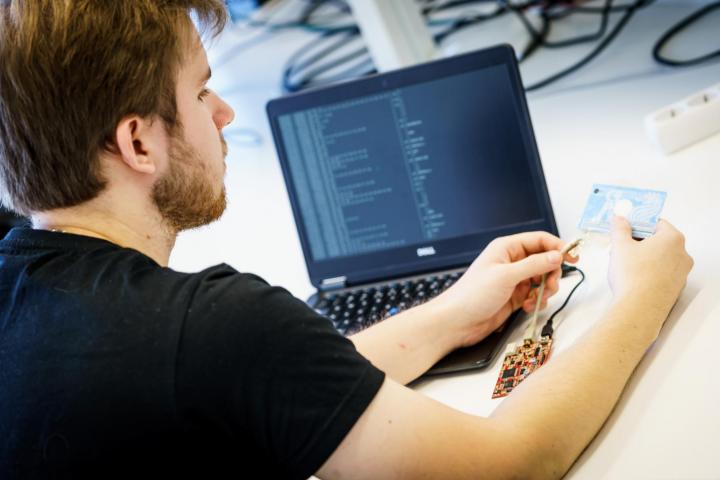
As importance of information security in the modern era is tremendous, cybersecurity was one of the priorities of the last Czech Presidency of the Council of the European Union. FIT CTU is also aware of the importance of this field, and cybersecurity is therefore one of the key topics on which the faculty focuses. It was the first in the Czech Republic to open a state-of-the-art centre for the study of information security - the Department of Information Security, which guarantees security specialisations in bachelor and master studies. The majors have a balanced thematic mix of courses in system and network security, malware detection, hardware and software security.
Students can test their acquired knowledge in practice within the laboratories that the department has at its disposal. In the Ethical Hacking Lab, they learn ethical hacking techniques and conduct penetration tests, simulating the behaviour of attackers and looking for potential security weaknesses. In the Forensic Analysis Lab, students can perform forensic analysis of various storage media of compromised systems to uncover the origins and causes of attacks. For example, the RFID lab is used to test the security of smart cards.
"We teach our students how to face the cyber threat posed by hackers in a realistic way, thanks to both modern technology in the labs and the IT experience of the teachers. Students are also able to detect computer systems' hidden vulnerabilities at both software and hardware level, react to them correctly and propose solutions to eliminate them," says Prof. Ing. Róbert Lórencz, CSc., Head of the Department of Information Security.
Cybersecurity experts must always stay one step ahead of hackers and be prepared for possible attacks on even mainstream and Internet of Things (IoT) systems, such as smart homes, pacemakers, payment cards and terminals, access control systems, electronic units in modern cars, autonomous vehicles and control of entire train sets. With the proliferation of digitalisation, computer systems are all around us, and to protect the privacy and security of users, they need to be secured not only with many different cryptographic algorithms, but also with the appropriate architecture of these embedded systems.
Security and resilience against attacks are also addressed by experts and students from the Department of Digital Design in their laboratories. The Embedded Security Lab focuses on protecting embedded and IoT systems as they are vulnerable to physical attacks by potential attackers in everyday life. In order to simulate and validate their resistance to such attacks, FIT students have a state-of-the-art facility where they learn how to not only crack the security of these systems, but more importantly, how to secure them appropriately.
The Network Traffic Monitoring Laboratory is dedicated to the detection of security threats in high-speed networks. This is because network traffic, especially encrypted traffic, can hide suspicious communications from attackers or malicious applications.
"We need to detect security threats, but detection over encrypted traffic is not easy. We are exploring the use of machine learning as a possible means to avoid decrypting content and protect user privacy. Related to this is research around training datasets and their quality or hardware acceleration for fast networks," Ing. Tomáš Čejka, Ph.D., head of the laboratory, comments another activity at FIT CTU.